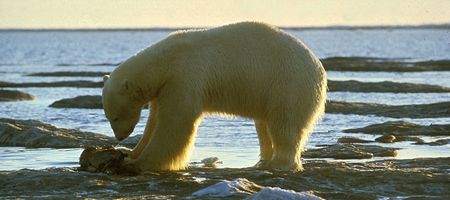The loss of Arctic sea ice could lead to species such as polar bears and some types of seal and whale being lost through hybridization.

Sea ice in the Arctic is expected to disappear altogether in the summer months by the end of this century. And, writing in Nature, researchers say that this could mean the extinction of some rare marine mammals and the loss of many adaptive gene combinations.
More than 20 marine mammal species are believed to be at risk of hybridization, and several Arctic hybrids have already been identified through DNA testing. For example, hunters shot a white bear with brown patches in 2006 that was later confirmed to be a polar bear-grizzly bear hybrid.
Marine mammalogist Brendan Kelly of the National Oceanic and Atmospheric Administration’s marine mammal lab says that genes developed over millennia in isolated populations have given many Arctic marine animals sets of fine-tuned adaptations, helping them uniquely thrive in the harsh environment.
The authors acknowledge that hybridization can actually be a good thing, especially for the first generation. But in later generations, the process begins to have more negative effects.
Genes related to traits that once allowed the animal to thrive in a specific habitat can become diluted, leaving the animal less well adapted to its environment.
In the case of creatures such as the rare North Pacific right whale, of which fewer than 200 individuals are believed to be left, interbreeding with the much more numberous bowhead whalescould mean extinction.






